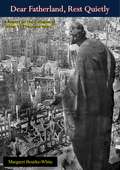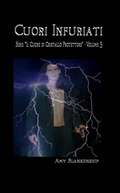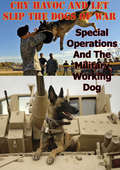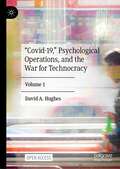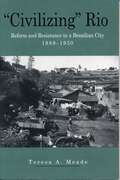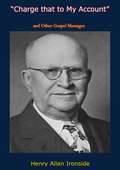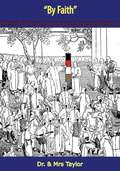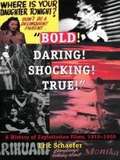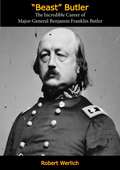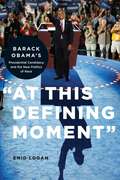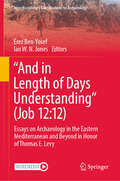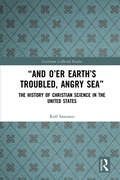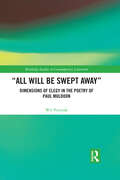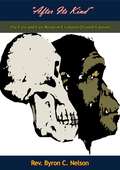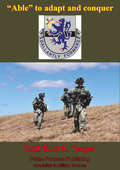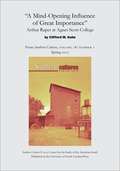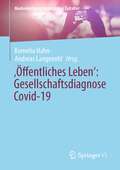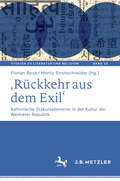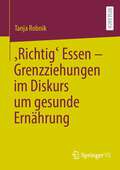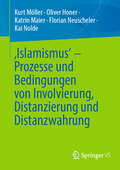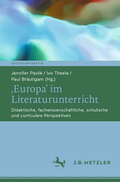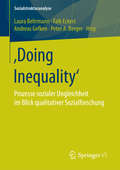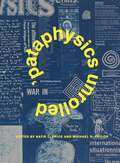- Table View
- List View
“Dear Fatherland, Rest Quietly”: A Report on the Collapse of Hitler’s “Thousand Years”
by Margaret Bourke-WhiteTHIS IS the story of the search for “Faceless Fritz”—the most difficult and frightening camera-hunt ever undertaken by ace photographer-reporter Margaret Bourke-White. “Fearless Fritz” was cable shorthand for one of several LIFE assignments that brought Miss Bourke-White and her camera to Germany some months before its fall. She was to pin down the private German citizens—to find out what kind of human being it was who, multiplied by millions, made up the Nazi terror. Was he cruel? Was he a villain? Or was he a jolly, gemutlich, beer-drinking, music-loving sentimentalist so many of us remembered, who had really been helpless in the power of a small gang of madmen?By the time Margaret Bourke-White arrived in Germany on this mission, she had seen much death and danger. She had been in Moscow during its fiercest bombings. In Italy she had come closer to the enemy lines than any American woman before her. But it was in Germany that cold horror overtook her.The Germany that Miss Bourke-White saw and recorded in this book puts to shame Dali’s most grotesque nightmares. It is a physical and spiritual chamber of horrors, a cuckoo-cloud land whose inhabitants live in a lost dream. They are the people whose faces are as usual and recognizable as neighbors’, but whose reactions do not seem to make sense.“Dear Fatherland, Rest Quietly,” which was first published in 1946, takes its title from the words of the anthem, “Die Wacht am Rhein,” to which German soldiers have marched three times in the memory of many now living. It brings new light to bear on the German people—in the hope that through a more immediate understanding of them, a fourth march may be averted…Richly illustrated throughout with 128 of her photographs, with detailed captions, forming an integral part of Margaret Bourke-White’s important report on conquered Germany.
“Cuori Infuriati” - Serie “Il Cuore di Cristallo Protettore” - Volume 3
by Ilaria Fortuna Amy Blankenship“Cuori Infuriati” Serie “Il Cuore di Cristallo Protettore” - Volume 3 Sommario Toya lotterebbe contro ogni cosa pur di stare con Kyoko. Il suo cuore e le sue armi le appartengono, desidera solo che lei li accetti. Anche quando l’oscurità del loro nemico minaccia ciò per cui hanno duramente combattuto, Toya morirebbe per l’onore e l’amore di Kyoko. In un momento di gioia, trova finalmente il coraggio di aprire il proprio cuore misterioso e confessarle i suoi sentimenti più profondi. Tutto cambierà per sempre, quando Kyoko gli viene strappata via dagli dei spietati. Credendo di essere stato maledetto, Toya si arrende, credendo ingiustamente che la sua unica ragione di vita lo abbia tradito. Ora, Toya deve difendere Kyoko dal più temibile dei nemici.. sé stesso.
“Cry Havoc And Let Slip The Dogs Of War”. Special Operations And The Military Working Dog
by Major Joseph F. WhelanThis paper examines the potential for military working dogs to support Special Operations Forces (SOF). Modern technology has not eliminated the operational prospective for the military employment of dogs. Canine olfactory superiority, advanced hearing, and ability to detect movement offer significant military employment potential. Military working dogs can be trained for scouting, patrolling, building and ship searches, countermine, counterdrug and tracking. When used properly, dogs are an inexpensive and efficient force multiplier.Qualitative research using correlational data comprises the monograph's methodology. Military working dog capabilities, limitations, and historical employment will be discussed and then compared to Special Operation Forces principal missions and collateral activities.The conclusion demonstrates that dogs have a wider role to perform in today's operational environment and that military working dogs can augment and complement SOF operations. Nearly every SOF mission can benefit from the inclusion of dogs- particularly in support of Stability and Support Operations conducted in developing countries that cannot employ or sustain complex and technologically sophisticated equipment. Military working dogs are a proven, low technology, combat and combat support capability and may have a future role in support of Special Operations Forces.
“Covid-19,” Psychological Operations, and the War for Technocracy: Volume 1
by David A. HughesCamouflaged by “Covid-19,” an undeclared global class war was initiated in 2020, aimed at replacing liberal democracy with technocracy, a novel, biodigital form of totalitarianism. The opening campaign involved the largest psychological operation in history, intended to demoralise, disorientate, and debilitate the public. This volume deals with the application of shock and stress, trauma-based mind control, the use of fear and threat, cognitive attack, weaponised deception, and techniques for turning society against itself. This is an open access book.
“Civilizing” Rio: Reform and Resistance in a Brazilian City, 1889–1930
by Teresa MeadeA massive urban renewal and public-health campaign in the first decades of the nineteenth century transformed Brazil's capital into a showcase of European architecture and public works. The renovation of Rio, or "civilization" campaign, as the government called it, widened streets, modernized the port, and improved sanitation, lighting, and public transportation. These changes made life worse, not better, for the majority of the city's residents, however; the laboring poor could no longer afford to live in the downtown, and the public-health plan did not extend to the peripheral areas where they were being forced to move. Their resistance is the focus of Teresa Meade's study.Meade details how Rio grew according to the requirements of international capital, which financed, planned, and oversaw the renewal—and how local movements resisted these powerful, distant forces. She also traces the popular rebellion that continued for more than twenty years after the renovation ended in 1909, illustrating that community protests are the major characteristic of political life in the modern era.
“Charge that to My Account” and Other Gospel Messages
by Henry IronsideBecause GOD has been pleased to set His seal of approval upon these simple gospel messages by using them in the awakening and salvation of sinners, they can be found here, in book form, in the earnest hope that many who read them may find joy and peace in believing!First published in 1931, Pastor H. A. Ironside’s “Charge that to My Account” and Other Gospel Messages contains 12 interesting studies, beginning with his best known gospel presentation based on Paul’s letter to Philemon, and includes “Will a Loving God Permit Anyone to Be Eternally Lost?” and “Inside the Veil, Outside the Camp.”
“By Faith”: Henry W. Frost and the China Inland Mission
by Dr Howard Taylor Geraldine TaylorBy inspired definition faith is ‘being sure of what we hope for and certain of what we do not see.” By faith we are saved. By faith we are justified. By faith we please God. Though faith is central in the Christian life, we somehow are amazed when we see the vitality and power of faith at work in ordinary people’s lives. In each generation we see a special few men and women who have stretched themselves by risking everything on the sure promises of God. In the end they prove the faithfulness of their Master and challenge their own day to take their God seriously. Their stories are an encouragement to the next generation as they in turn join the ranks of that “great cloud of witnesses” who cheer us on in the life of faith.Henry W. Frost bore eloquent testimony to his generation that God was willing to bear the responsibility for a surrendered life. What Hudson Taylor was to England, Henry Frost was to North America. His strength of faith and character gave stability to the fledgling North American branch of the China Inland Mission.It has been said that courage is the power to let go of the familiar. If that is the case, the life of Henry Frost and his leadership of the North American China Inland Mission will be the most courageous biography you have ever read.
“Bold! Daring! Shocking! True!”: A History of Exploitation Films, 1919-1959
by Eric SchaeferUnashamed nudists, high-flying hopheads, brazen strippers, vicious vice lords, and high school girls who find themselves "in trouble" comprise the population of exploitation films. In the first full-scale history of these low-budget movies of decades past, Eric Schaefer reveals how this pioneering form of "trash film" purveyed the forbidden thrills of explicit sexual behavior, drug use, and vice that the mainstream movie industry could not show. Bold! Daring! Shocking! True! is a meticulously researched, interdisciplinary study that is informed by a wide range of sources--including both mainstream and industry newspapers and periodicals, archival accounts, personal interviews, and the films themselves. Schaefer begins by exploring the unique mode of production of exploitation movies, their distribution, and the outrageous exhibition practices that were rooted in the traditions of sideshows and carnivals. His close analysis of dozens of films, such as The Road to Ruin, Modern Motherhood, One Way Ticket to Hell, and The Wages of Sin demonstrates that these films were more than simply "bad" movies. By situating exploitation films in a historical context and organizing them according to the social problems they addressed, Schaefer shows how they evolved during a period of forty years and how, during that time, they shaped public policies and attitudes. Finally, he focuses on the changes in the postwar American film industry that led to the decline of the classical exploitation film and set the stage for the rise of "sexploitation" in the 1960s. Engagingly written, illustrated with rare photographs, posters, production stills, and ad slicks, and offering a full filmography, Bold! Daring! Shocking! True! reveals a forgotten side of film history and American culture. It will delight and inform those interested in film history, cultural studies, American studies and history, and the many fans of exploitation films.
“Beast” Butler: The Incredible Career of Major-General Benjamin Franklin Butler
by Robert WerlichFirst published in 1962, this is a biography of Benjamin Franklin Butler, (1818-1893), aka “Beast” Butler, an American lawyer, politician, soldier and businessman from Massachusetts, who became best known as a political major general of the Union Army during the American Civil War, and for his leadership role in the impeachment of President Andrew Johnson. He was a colorful and often controversial figure on the national stage and in the Massachusetts political scene, where he served one term as Governor.“In the history of the United States, there has never been anyone quite like Benjamin Franklin Butler. Without a doubt one of the most incompetent Generals and corrupt politicians this nation has ever seen, Butler was accused during the Civil War, of murder, trading with the enemy, theft, maltreatment of women, blackmail, and arson. He was the only Union General that the Confederacy ordered hanged on the spot if captured.With his malefactions public knowledge, he became after the War, successively five times Republican United States Congressman, Democratic Governor of Massachusetts, and Greenback-Peoples candidate for the Presidency. He achieved these high positions by sheer bluff, taking care of his supporters, and by an oratorical ability to twist any occurrence, no matter how incredible, stupid, or shady into a vindication of himself. He was a demagogue’s demagogue.”—Robert Werlich, Foreword
“At This Defining Moment”: Barack Obama’s Presidential Candidacy and the New Politics of Race
by Enid Lynette LoganIn January 2009, Barack Obama became the 44th president of the United States. In the weeks and months following the election, as in those that preceded it, countless social observers from across the ideological spectrum commented upon the cultural, social and political significance of “the Obama phenomenon.” In “At this Defining Moment,” Enid Logan provides a nuanced analysis framed by innovative theoretical insights to explore how Barack Obama’s presidential candidacy both reflected and shaped the dynamics of race in the contemporary United States. Using the 2008 election as a case study of U.S. race relations, and based on a wealth of empirical data that includes an analysis of over 1,500 newspaper articles, blog postings, and other forms of public speech collected over a 3 year period, Logan claims that while race played a central role in the 2008 election, it was in several respects different from the past. Logan ultimately concludes that while the selection of an individual African American man as president does not mean that racism is dead in the contemporary United States, we must also think creatively and expansively about what the election does mean for the nation and for the evolving contours of race in the 21st century.
“And in Length of Days Understanding”: Essays on Archaeology in the Eastern Mediterranean and Beyond in Honor of Thomas E. Levy (Interdisciplinary Contributions to Archaeology)
by Ian W. N. Jones Erez Ben-YosefThis two-volume book presents cutting-edge archaeological research, primarily as practiced in the Eastern Mediterranean region. These volumes’ key foci are inspired by the work of Thomas E. Levy. Volume 1 provides an in-depth look at new archaeological research in the southern Levant (primarily in modern Israel and Jordan) inspired by Levy’s commitment to understanding social, political, and economic processes in a long-term or “deep time” perspective. Volume 2 focuses on new research in several key areas of 21st century anthropological archaeology and archaeological science. Volume 1 is organized around two major themes: 1) the later prehistory of the southern Levant, or the Neolithic, Chalcolithic, and Bronze Age, and 2) new research in biblical archaeology, or the historical archaeology of the Iron Age. Each section contains a combination of new perspectives on key debates and studies introducing new research questions and directions. Volume 2 is organized around five major themes: 1) the archaeology of the Faynan copper ore district of southern Jordan, a key region for archaeometallurgical research in West Asia where Levy conducted field research for over a decade, 2) new research in archaeometallurgy beyond the Faynan region, 3) marine and maritime archaeology, focusing on issues of trade and environmental change, 4) cyber-archaeology, an important 21st century field Levy conceived as “the marriage of archaeology, engineering, computer science, and the natural sciences,” and 5) key issues in anthropological archaeological theory. In addition to presenting the reader with an up-to-date view of research in each of these areas, the volume also has chapters exploring the connections between these themes, e.g. the maritime trade of metals and cyber-/digital archaeological approaches to metallurgy. The work contains contributions from both up-and-coming early career researchers and key established figures in their fields. This book is an essential reference for archaeologists and scholars in related disciplines working in the southern Levant and the Eastern Mediterranean.
“And O’er Earth’s Troubled, Angry Sea”: The History of Christian Science in the United States (Variorum Collected Studies)
by Rolf SwensenChristian Science is one of the most unique and controversial of American religions, but there has never been a history of this influential metaphysical group, best known for its healing through prayer. Most attention has previously focused on the church’s founder, Mary Baker Eddy (1821-1910). This compilation of nine previously published scholarly articles, buttressed by additional insight presented in the preface, introduction, and conclusion, should lead to further investigation of this compelling topic.This volume investigates the origins of the Christian Science movement, illustrates how Eddy’s students -- mainly women -- helped its rapid spread through healings, how Eddy guided and restrained her students, examines some denominational growing pains, underscores how The Mother Church in Boston and Eddy’s Church Manual evolved, recounts dozens of testimonies of healing, and shows how local, or branch, churches operated before and after Eddy’s passing. Contrary to previous assumptions, the new Christian religion was surprisingly diverse, with almost one half of the membership coming from the lower middle and working classes. This vibrant church ultimately declined, due to excessive centralization and insufficient utilization of the membership, plus lack of social activities and the rise of medical science. Recent efforts to revitalize the movement through embracing communities are continuing.“And O’er Earth’s Troubled, Angry Sea”: The History of Christian Science in the United States will appeal to Christian Scientists, kindred spirits in the metaphysical world, anyone interested in religion, and those who read social history. Each chapter is suitable for group discussions and for undergraduate or graduate classes.
“All Will Be Swept Away”: Dimensions of Elegy in the Poetry of Paul Muldoon (Routledge Studies in Contemporary Literature)
by Wit PietrzakThe book offers the first comprehensive study of Paul Muldoon’s mourning verse. Considering not only the celebrated elegies like "Yarrow," "Incantata" or "Sillyhow Stride" but also the elegiac impulse as it develops throughout Muldoon’s entire work, All Will Be Swept Away charts a large swathe of Muldoon’s poetic landscape in order to show the complexity with which he approaches the themes of death and mourning. Using archival material as well as a vast array of theoretical apparatuses, the book unveils the psychological, literary and political undertones in his poetry, all the while attending to the operations of the poetic text: its form, its music and its capacity to console, warn and censure.
“After Its Kind”: The First and Last Word on Evolution [Fourth Edition]
by Rev Byron C. NelsonThe pages of this book are the product of years of study of a Bible-lover who has gone through the fiery furnace of skepticism and has come out firmly convinced of the scientific trustworthiness of the first chapter of the Book of Genesis. In this book are contained the conclusions of an examining and weighing of evidences and arguments for and against the theory of evolution which began when, as a young man in the University of Wisconsin, the author’s Christian faith was almost destroyed by the wave of evolutionary philosophy and pseudo-science that has swept over the universities and colleges of our land.The incentive to write these pages was a desire to give to others the benefit of the author’s personal experience. Having been fortunate or unfortunate enough to have been caught early in life in the maelstrom of religious uncertainty that catches so many in our day, due to the widespread discussion of evolution, and having been driven by a desire to know the truth, cost what it may, to follow every important evolutionary argument to its end, and then having finally concluded that nothing is so scientific as the Bible statement “after its kind,” the author believed that a work on the subject of evolution by him might meet the needs of some others who were undergoing an experience like his.
“Able” To Adapt And Conquer (Eyewitness To Modern War #1)
by CSM Todd R. YergerDuring Operation Enduring Freedom (OEF) VII and VIII, Able Troop 3-71 Cavalry operated as the brigade rapid mounted reaction force throughout Regional Command East (RC-E) and South in Afghanistan. This paper tells of how our unit moved in-between Regional Commands to deter and destroy the enemy, set up multiple Combat Out Posts (COP), trained Afghanistan National Police (ANP), dealt with the first extension and set the stages in the North for follow on forces.
“A Mind-Opening Influence of Great Importance”: Arthur Raper at Agnes Scott College
by Clifford M. KuhnHe was such an eye-opener to me . . . such a reversal of the whole way you think about life and society."This article appears in the Spring 2012 issue of Southern Cultures. The full issue is also available as an ebook.Southern Cultures is published quarterly (spring, summer, fall, winter) by the University of North Carolina Press. The journal is sponsored by the University of North Carolina at Chapel Hill's Center for the Study of the American South.
‚Öffentliches Leben‘: Gesellschaftsdiagnose Covid-19 (Medienkulturen im digitalen Zeitalter)
by Andreas Langenohl Kornelia HahnMit Ausbruch der Covid-19-Pandemie beobachten wir plötzlich gravierende Veränderungen des sozialen Lebens, die die aktuelle Situation als tragisches Krisenexperiment fungieren lassen – ein Experiment, das sich besonders auch im Hinblick auf die Konzeptualisierung von Öffentlichkeit und die soziologische Beobachtung empirischer Öffentlichkeiten zeigt. Nicht zuletzt aufgrund des Drucks öffentlicher Kommunikation hat die Covid-19-Pandemie global zu fast vergleichbaren gesellschaftspolitischen Reaktionen geführt: Das öffentliche Leben ist innerhalb kürzester Zeit und flächendeckend wie nie zuvor eingeschränkt worden. Diese Einschränkung wird als fraglose Gegenmaßnahme kommuniziert, die sich aus der Art der pandemischen Bedrohung rational ableitet. Aus einer öffentlichkeitssoziologischen Sicht manifestiert sich in dieser Reaktion eine Gesellschaftsdiagnose mit Universalismusanspruch, die indes ambivalent bleibt: In Zeiten von Epidemien gilt öffentliches Leben als ebenso gefährlich wie gefährdet.
‚Rückkehr aus dem Exil‘: Katholische Diskurselemente in der Kultur der Weimarer Republik (Studien zu Literatur und Religion / Studies on Literature and Religion #10)
by Florian Bock Moritz StrohschneiderDie Kultur der Weimarer Republik begeisterte sich in besonderem Maße für solche religiösen Ideen, von denen man sich Hilfe beim Umgang mit den allgegenwärtigen Krisenerfahrungen erhoffte. Auf diese Weise wanderten zahlreiche genuin katholische Überzeugungen und Positionen in den öffentlichen Diskurs ein und prägten gesellschaftliche Semantiken und Praktiken. Solche katholischen Diskurselemente, die außerhalb des gesellschaftlichen Teilsystems Religion, aus dem sie eigentlich stammen, und damit auch jenseits der katholischen Milieus wirksam und einflussreich waren, stehen im Fokus dieses interdisziplinär angelegten Bandes.
‚Richtig‘ Essen – Grenzziehungen im Diskurs um gesunde Ernährung
by Tanja RobnikDie vorliegende Studie fokussiert auf die diskursive Herstellung ‚richtiger‘ Ernährung und deren Bedeutung für die Ordnung moderner Gesellschaften. Sie analysiert gegenwärtige massenmediale Thematisierungen von Ernährung anhand der Leitfrage, wie entlang von Ernährungsdebatten die Normierung und Moralisierung sozialer Ordnung empirisch geschieht. Die Frage nach der ‚richtigen‘ Ernährung wird als Diskurs verortet, der die empirischen Verhandlungen des ‚was‘ (das ‚richtige‘ Essen), ‚wie‘ (‚richtige‘ Körper) und ‚wer‘ (die ‚Essenden‘) des Essens bzw. der Ernährung sichtbar macht. Das Forschungsvorhaben zielt dabei darauf ab, die eine ‚richtige‘ Ernährung im Sinne einer Baukastenanleitung herauszuarbeiten. Es beobachtet vielmehr, dass Ernährung gesellschaftlich erklärungsbedürftig ist. Essverhalten und -entscheidungen brauchen Begründungen und sind nicht immer gleich akzeptiert. Der diskurstheoretische Blick auf diese Auseinandersetzungen zeigt, welche Wissensformationen sich durchsetzen, in welcher Form sich Ernährungswissen plausibilisiert und wie sich dadurch ein hegemonialer Diskurs über die ‚richtige‘ Ernährung und die Essenden zeigt.
‚Islamismus‘ - Prozesse und Bedingungen von Involvierung, Distanzierung und Distanzwahrung
by Oliver Honer Kurt Möller Kai Nolde Katrin Maier Florian NeuschelerWarum und wie wird jemand zu einem sogenannten Islamisten oder zu einer Islamistin? Wieso, auf welche Weise und wann erfolgen Distanzierungen von solchen Haltungen und Sozialzusammenhängen? Was sind relevante Bedingungen dafür, dass ‚islamistische‘ Ansprachen bei anderen Adressierten nicht verfangen und sie jegliche Involvierung ablehnen? Dies sind die zentralen Fragen, zu denen dieses Buch Antworten präsentiert und daraus abgeleitet Handlungsempfehlungen formuliert. Dafür fasst es den aktuellen Forschungsstand zusammen und informiert über die empirischen Befunde der an der Hochschule Esslingen von 2019 bis 2022 durchgeführten Studie Wendezeit. Es handelt sich um eine auf junge Menschen fokussierte, längsschnittlich angelegte und qualitativ-rekonstruktive Untersuchung. Sie basiert auf Interviews mit 44 ehemalig ‚islamistisch‘ involvierten Proband:innen bzw. mit solchen, die Kontakte zu ‚islamistischen‘ Kontexten hatten, aber Distanz wahrten. In ausgewählten Fällen wurden Gespräche mit Distanzierungsberater:innen und Umfeldangehörigen der Betroffenen in die Auswertung einbezogen.
‚Europa‘ im Literaturunterricht: Didaktische, fachwissenschaftliche, schulische und curriculare Perspektiven (Deutschdidaktik)
by Ivo Theele Jennifer Pavlik Paul BräutigamDer Band dokumentiert die Ergebnisse einer Tagung, auf der Fachdidaktiker:innen, Fachwissenschaftler:innen, Lehrer:innen und Vertreter:innen der Bildungsverwaltung diskutierten, wie europasensibler Literaturunterricht aussehen könnte. Die Beiträge knüpfen an den Beschluss der Kultusministerkonferenz „Europabildung in der Schule“ an, differenzieren und spezifizieren diesen für den Literaturunterricht. In unterschiedlichen Perspektiven werden Potentiale einer Europabildung mit ästhetischen Medien, die curriculare Verankerung derselben sowie Möglichkeiten der Etablierung einer langfristigen Europabildung im Unterrichtsfach Deutsch erörtert.
‚Doing Inequality‘: Prozesse sozialer Ungleichheit im Blick qualitativer Sozialforschung (Sozialstrukturanalyse)
by Peter A. Berger Laura Behrmann Falk Eckert Andreas GefkenDie Beiträge des Bandes zeigen und diskutieren das Potenzial einer mikrosoziologischen, prozessorientierten – qualitativen – Ungleichheitsforschung. Sie spüren Praktiken sozialer Besser- und Schlechterstellung in den Bereichen Bildung, Arbeit, soziale Beziehungen und Migration auf. Mit der interpretativen, handlungstheoretischen oder praxissoziologischen Perspektive machen sie das „Doing Inequality“, die Gemachtheit und die Vollzugswirklichkeit sozialer Ungleichheit sowie die Rolle von Akteuren bei der Herstellung, der Reproduktion und dem Wandel von sozialen Ungleichheiten zentral. Soziale Ungleichheiten ergeben sich aus der regelmäßig ungleichen Verteilung „wertvoller Güter“ einer Gesellschaft. Doch wie werden diese zugeteilt, angeeignet oder vorenthalten?
’Pataphysics Unrolled (Refiguring Modernism)
by Katie L. Price and Michael R. TaylorIn the 1890s, French poet and playwright Alfred Jarry founded pataphysics, the absurdist “science of imaginary solutions,” a concept that has been nominally recognized as the precursor to Dadaism, Surrealism, and the Theater of the Absurd, among other movements. Over a century after Jarry “made the gesture of dying,” Katie L. Price and Michael R. Taylor argue that it is time to take the comedic intervention of pataphysics seriously.’Pataphysics Unrolled collects critical and creative essays to create an unauthorized account of pataphysical experimentation from its origins in the late nineteenth century through the contemporary moment. Reaching beyond the geographic and cultural boundaries normally associated with pataphysics, this volume presents rich readings of pataphysical syzygy, traces the influence of pataphysics across disciplines and outside of coteries such as the Collège de ’Pataphysique, and asks fundamental questions about the field of modern and contemporary studies that challenge distinctions between the modern and the postmodern, high and low culture, the serious and the comic. Touching on disciplines such as literature, art, architecture, education, music, and technology, this book reveals how pataphysics has been a platform and medium for persistent intellectual, poetic, conceptual, and artistic experimentation for over a century.In addition to the editors, the contributors to this volume include Charles Bernstein, Marc Décimo, Adam Dickinson, Johanna Drucker, Craig Dworkin, Catherine Hansen, James Hendler, John Heon, Ted Hiebert, Andrew Hugill, Steve McCaffery, Seth McDowell, Jerome McGann, Anne M. Mulhall, Marcus O’Dair, Jean-Michel Rabaté, Orchid Tierney, and Brandon Walsh.
